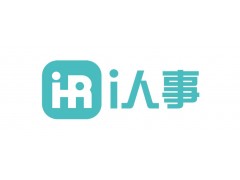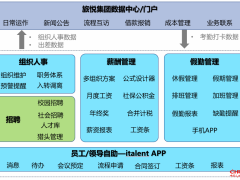In its recently released report “China’s Top Ten Talent Trends in China 2022", global recruitment group Hays mentioned that digital transformation across sectors will see significant acceleration in year 2022.
Today, digital transformation of enterprises is nothing new in China as technological advancement reaching every corner of the society. Since year 2020, COVID-19 has swept the world, but it also has accelerated the digitalization efforts of all types of companies. Business observers suggest that digital applications and transformation are mostly stressful for companies which include business strategy changes and even large-scale reforms, but the benefits of digital transformation for companies also give them enough motivation to make top-to-bottom changes in the long run. The Chinese government also emphasizes the importance of enterprise digitization and has introduced relevant policies such as the Digital Transformation Partnership Action Initiative and the Special Action Plan for the Digital Empowerment of SMEs in the past year.
In November 2020, China’s State Council issued "A Practical Action List of Small and Medium-sized Enterprises in cutting-edge and innovative technological industries”, which specifically called out the effort to drive digital transformation for SMEs. The goal is to provide digital transformation evaluation diagnostic services and on top of that, solutions to over 100,000 SMEs by the end of 2022, and eventually support their services to be on the cloud server by then.
It is conceivable that in the next few years, almost all industries will need many talents to help companies complete their digital transformation, and this process has already begun now. According to the Digital Transformation Index Report 2021 released by Tencent in November 2021, industries such as e-commerce and finance are significantly ahead in digitalization, more than three times the industry average. Meanwhile, Hays’ report suggests that there is a strong push within manufacturing for greater modernization and connectivity, with advances in 5G, cloud computing and the Industrial Internet of Things (IoT) looming on the horizon. In addition, sectors including education, real estate, automotive and online healthcare, are expected to accelerate their digitalization in the coming months to remain competitive.
What is enterprise digital transformation?
What exactly does digital transformation mean for an enterprise? Jessica Wang, Managing Director of Hays China, said that digital transformation is an evolution based on the business transformation, which relies on the advancement of technology and enhancement of data to establish digital connections between enterprises and users, or sometimes the connections between different business ecologies. “It is meant to improve the efficiency of business operations and the creation of value,” says Wang.
According to Wu Jiang, former president of the Chinese Academy of Personnel Science, digital transformation is not just a technological transformation, but fundamentally a transformation of innovative talent. For this reason, digital talent needs to be redefined. Professional knowledge and expertise no longer reflect the essential characteristics of digital talent. The core essential element of digital talent is cross-discipline and interdisciplinary.
Top talents hard to acquire in digital transformation, experts suggest professionals to maintain enthusiasm for learning
Even though most companies are going digitalized, the talent pool is currently in shortage especially for seasoned professionals. "Great candidates are very hard to find due to complexity of digital transformation and the high requirement for multi-skills and experiences," said Jessica Wang, “versatile and well-experienced talent is highly scarce. Ideal candidate in digital transformation usually needs to be knowledgeable in fields including technology, business, and legal affairs, while having unique insight for market trends, competent project management capability and change management skills, excellent communication skills, while multilinguistic and multicultural communication will also make the candidate highly competitive.”
The most critical positions in digital transformation usually relate to data protection and information security, namely Data Protection Officer (DPO), Information Security Officer (ISO), and the central role for follow-up works IT Business Partner (ITBP). Other important positions are Product Owner, responsible for bridging end-to-end information, ensuring that business needs are accurately translated into IT language, and finally forming solutions; Architect, overarchingly designing the digital transformation of the enterprise while keeping adaptability with previous systems; Project Manager, specifically responsible for projects with significant input during the project period; and Implementation Consultant, who communicates with the front-end requirements and realizes the implementation of the whole system.
Salary and package for key positions in digital transformation is quite generous. For example, annual salary for ISO may range from one to one and half million yuan. Meanwhile, those with relevant experience in the digital field will have a 25-30% salary increase for job hopping, which exceeds market average. Lately the rate for job hopping for positions in digital transformation also reached around 10% - 30%, showing an upward trend.
Jessica Wang comments that most of the candidates in digital transformation are from fields like computer science, software engineering, and information systems, while the ideal candidates for some core positions usually hold more than 10 years’ experience. On a related note, Jessica Wang pointed those candidates from domestic companies see greater advantage in technological skills, while those from MNCs and foreign companies are more competitive in foreign languages and communication skills.
According to Wu Jiang, talent training must combine soft-skill potentials with hard-skill knowledge. Similarly, Jessica Wang suggests candidates who are interested in digital transformation to keep learning and keep an open mind. “Technology is undergoing rapid changes every day. Therefore, candidates in the field must always be exposed to the most advanced technology to keep pace with the competitiveness of job search,” Jessica said, “working models and company cultures are also changing with technological advancement, hence it is vital for candidates to be quickly adapt to the changing environment to be successful.”
For young people or recent college graduates seeking for opportunities in digital transformation, Jessica Wang recommends starting career in a larger company will help them to learn and optimize hard skills. For example, B2C companies usually have larger traffic and often utilize high concurrencies distributed technology, which form a great environment to untap fast growth for young professionals. Starting from there, young professionals can choose their second job based on interested sectors to further develop their career. For candidates coming from a technological background, according to Jessica, it is more vital to improve their hard skills when choosing the first job than preference over a specific sector.
For big data and AI algorithms, overseas returnees are highly favoured due to comparatively advancement in the fields in the western market, says Jessica. However, on a broader level, overseas returnees are not necessarily more competitive than local talents. For digital transformation-related positions, the ideal candidate for a domestic company needs to understand not only the technology, but also the local market and local business models. Hence local talents with experience in large domestic companies are in fact equally competitive with overseas returnees.
MNCs transform slowly, local companies catching up quickly
In the short term, MNCs face greater challenges in digital transformation compared to domestic companies. Many domestic companies are built upon digitalized concept and practices, so they can quickly provide relatively light-weighted digital solutions while adopting the fast-paced transformation. During the transformation period, for domestic companies, the management can usually make quick decisions and make top-down changes efficiently as they communicate relatively easy compared to MNCs.
On the other hand, “traditional” MNCs usually need to invest more resources on structural adjustments during digital transformation because of their long-established business model. Meanwhile their overseas headquarters, in many cases, are lack of in-depth understanding of the Chinese market, and the time and effort spent on communication are substantial. In the case if MNCs adjust properly, they may still have strong advantages over many domestic companies when it comes to long-proven mature and successful business models. In addition, trend shows that more and more foreign companies are investing in research and development facilities in mainland China, which may add on more competitiveness compared to domestic companies in the long run.
In the fierce competition for talents, however, the domestic enterprises are in a winning position over the MNCs in speed. Domestic companies have already moved recruitment online which largely accelerated recruitment process, and many foreign companies have not even started online interviews yet. It is apparently urgent for MNCs to improve recruitment efficiency to compete for the best talents in the field.
In terms of talent market trends, China's IT sector in 2022 will see a resurgence, says Jessica Wang. In the period of digital transformation, companies are expected to continue adjust recruitment strategy in a timely manner, which will eventually help them to acquire suitable talents and complete the transformation effectively.
 手机版|
手机版|

 二维码|
二维码|








